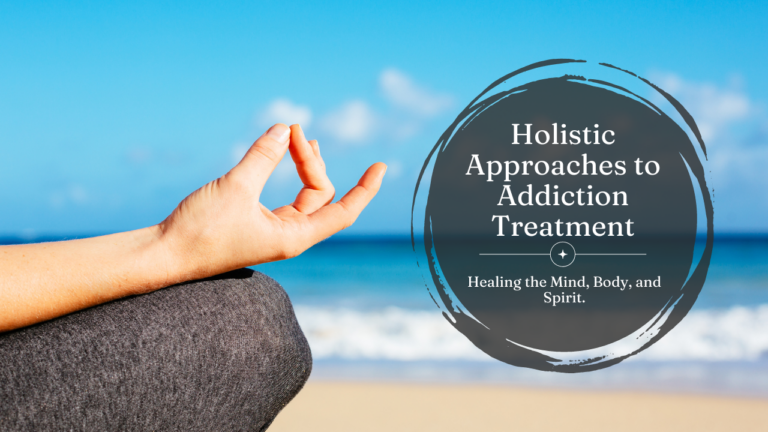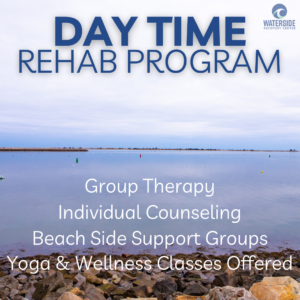
Holistic Approaches to Addiction Treatment: A Comprehensive Guide to Healing the Mind, Body, and Spirit
Holistic approaches to addiction treatment have gained popularity in recent years as people seek alternative methods to overcome substance abuse. These methods focus on treating the whole person, including their mind, body, and spirit, rather than just the addiction itself. By addressing the underlying causes of addiction and promoting overall wellness, holistic approaches aim to provide a more comprehensive and sustainable solution to addiction recovery.
One of the key principles of holistic addiction treatment is the belief that addiction is not solely a physical disease, but also a mental and spiritual one. Therefore, treatment should address all aspects of a person’s being to achieve lasting recovery. This may involve a combination of traditional therapies, such as counseling and medication, as well as complementary therapies, such as acupuncture, yoga, and meditation.
Holistic approaches to addiction treatment also prioritize the importance of nutrition, exercise, and other lifestyle factors in promoting overall wellness. By focusing on these areas, individuals can improve their physical health and mental well-being, which can in turn help them overcome addiction. Overall, holistic addiction treatment offers a unique and comprehensive approach to recovery that can benefit individuals seeking a more personalized and integrated approach to healing.
Understanding Addiction
Addiction is a complex and chronic disease that affects millions of people worldwide. It is characterized by compulsive drug-seeking and use despite harmful consequences. Addiction not only affects the individual but also their family, friends, and society as a whole. In order to effectively treat addiction, it is important to understand its root causes and the biopsychosocial model that underlies it.
Biopsychosocial Model
The biopsychosocial model is a comprehensive approach to understanding addiction that takes into account biological, psychological, and social factors. According to this model, addiction is the result of a complex interplay between these factors. Biological factors include genetic predisposition, brain chemistry, and physical health. Psychological factors include mental health, personality traits, and cognitive processes. Social factors include family, peers, culture, and environment.
Root Causes of Addiction
There are many factors that can contribute to the development of addiction. Some of the most common root causes include:
- Trauma: Traumatic experiences such as abuse, neglect, or violence can increase the risk of addiction.
- Mental Health Disorders: Mental health disorders such as depression, anxiety, or PTSD can increase the risk of addiction.
- Genetics: Genetic factors can make some individuals more susceptible to addiction.
- Social Factors: Peer pressure, social isolation, and cultural norms can all contribute to the development of addiction.
In conclusion, addiction is a complex and chronic disease that requires a holistic approach to treatment. By understanding the biopsychosocial model and the root causes of addiction, individuals and healthcare professionals can develop effective treatment plans that address the whole person – mind, body, and spirit.
Holistic Treatment Fundamentals
Integrative Approach
Holistic addiction treatment is an integrative approach that considers the whole person, not just the addiction. It combines different therapies and techniques to address the physical, mental, emotional, and spiritual aspects of addiction.
The integrative approach may include a combination of traditional therapies, such as cognitive-behavioral therapy, group therapy, and individual counseling, as well as complementary therapies, such as yoga, meditation, acupuncture, and massage therapy.
By addressing the whole person, the integrative approach helps individuals in addiction recovery to develop healthy coping mechanisms and improve their overall well-being.
Personalized Care
Holistic addiction treatment recognizes that every person’s journey to recovery is unique. Therefore, personalized care is an essential part of the holistic approach.
A personalized care plan takes into account the individual’s specific needs, preferences, and goals. It may include a combination of therapies and techniques tailored to the individual’s physical, mental, emotional, and spiritual needs.
Personalized care also involves ongoing assessment and adjustment of the treatment plan as the individual progresses through recovery.
By providing personalized care, holistic addiction treatment can help individuals in recovery to achieve long-term success and maintain a healthy, balanced lifestyle.
Therapeutic Modalities
Behavioral Therapies
Behavioral therapies are an essential part of holistic addiction treatment, as they focus on changing the negative behaviors and thought patterns that contribute to addiction. Some of the most common behavioral therapies include cognitive-behavioral therapy (CBT), dialectical behavior therapy (DBT), and motivational interviewing.
CBT is a goal-oriented therapy that helps individuals identify and change negative thought patterns and behaviors that contribute to addiction. DBT is a type of CBT that focuses on teaching individuals how to regulate their emotions and improve their interpersonal relationships. Motivational interviewing is a client-centered therapy that helps individuals identify their own motivations for change and build their self-confidence.
Complementary Therapies
Complementary therapies are used in conjunction with traditional therapies to help individuals achieve balance and improve their overall well-being. Some of the most common complementary therapies used in addiction treatment include acupuncture, massage therapy, yoga, and meditation.
Acupuncture involves the insertion of thin needles into specific points on the body to help alleviate stress, reduce cravings, and improve overall well-being. Massage therapy helps individuals relax and reduce stress, while also promoting the release of endorphins, which can help reduce pain and improve mood.
Yoga and meditation are both practices that focus on the mind-body connection and can help individuals reduce stress, improve their mood, and increase their overall sense of well-being. These practices can also help individuals develop greater self-awareness and improve their ability to cope with stress and difficult emotions.
Aftercare and Ongoing Support
Holistic approaches to addiction treatment emphasize the importance of aftercare and ongoing support for individuals in recovery. Aftercare refers to the support and resources provided to individuals after completing a formal treatment program. This may include ongoing therapy, support groups, and other resources to help individuals maintain their sobriety and prevent relapse.
One important aspect of aftercare is the development of a relapse prevention plan. This plan outlines strategies and coping mechanisms that individuals can use to avoid triggers and manage cravings. It may also include a list of emergency contacts and resources in case of a relapse.
In addition to aftercare, ongoing support is crucial for individuals in recovery. This may include participation in support groups such as Alcoholics Anonymous or Narcotics Anonymous, which provide a supportive community of individuals who understand the challenges of addiction and recovery. Other forms of ongoing support may include regular therapy sessions, mindfulness practices, and healthy lifestyle changes such as exercise and nutrition.
Overall, aftercare and ongoing support are essential components of holistic approaches to addiction treatment. By providing individuals with the resources and support they need to maintain their sobriety, these approaches can help individuals achieve long-term recovery and improve their overall quality of life.
At Waterside Recovery Centers we pride ourselves on providing the top addiction treatment in Massachusetts. With a range of evidence-based, client-focused and individualized treatment offerings, we are able to provide the ideal support for those seeking recovery from substance addiction. Please feel free to reach out to our help line at anytime.
(866) 671-8620



